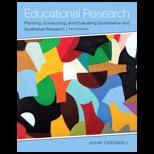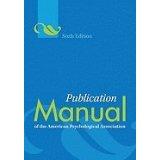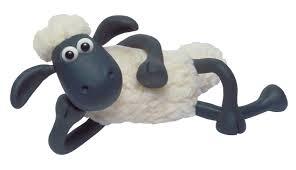|
COURSE OVERVIEW
AVAILABLE
HERE
|
OR IN THE BLACKBOARD SYLLABUS FOLDER |
EDF 5481-02
FALL 2017
METHODS OF EDUCATIONAL
RESEARCH
3301 Stone Building
Thursdays
3:35-6:00 P.M.
INSTRUCTOR: Professor Susan Carol Losh
Department of Educational Psychology
and Learning Systems, Florida State University
PLEASE INFORM ME IMMEDIATELY
IF YOU REQUIRE ANY ASSISTANCE WITH DISABILITIES!
MY OFFICE: 3204 Stone Building
850-644-8778 email
is the fastest way to reach me
slosh@fsu.edu |
OFFICE HOURS:
1:30-3:30 P.M. Thursday & by Appointment
(please see me about other days or times) |
REQUIRED COURSE TEXTS & READINGS
FOR BOTH PLEASE BE SURE TO ACCESS THE
CORRECT EDITION
|

CRESWELL: Creswell, J.W.
(2015).
Educational research: Planning, conducting, and evaluating quantitative
and qualitative research (5th
edition). Boston: Pearson Education.
Creswell is a solid basic textbook for
introductory research methods. GET THIS EDITION.

APA: American Psychological Association.
(2009). Publication Manual of the American Psychological Association,
Sixth
Edition. Washington, DC: American Psychological Association.
the Publication Manual is one of
those "bite the bullet" purchases. If you write a thesis or dissertation,
submit a conference proposal--or write a paper for many courses, the situation
will demand your use of "APA format". These situations will recur frequently.
BE CERTAIN TO GET THE MOST RECENT EDITION: THE 6TH.
Avoid economizing
here by using an earlier edition!
Check for both texts at online sources
such as Amazon; used copies may be available (be sure to buy the editions
above).
Barnes and Noble now also handles textbooks
and they constantly run "specials".
COURSE GUIDES (LECTURES) will be placed
on the Internet on the myweb.fsu.edu server and linked in with each course
topic.
Course Guides are also available in Blackboard
under the COURSE DOCUMENTS folder.
These are required readings.
My overarching goal is to have you become
conversant with major ideas, influences and vocabulary in research methods,
especially those commonly used in behavioral and social research. These
will enable you not only to communicate with others in your immediate discipline
but also with practitioners in the behavioral and social sciences more
generally.
I've created my required reading guides
to serve as "lectures," basic orientations to the material we cover
in each section. I also include some issues and controversies when I would
like more coverage than I find in the course texts or when new research
(e.g., analyzing "tweets" versus systematic surveys) is released. Reading
the guides does not substitute for class attendance; they are to familiarize
you with the material so that we can use class time for discussion, demonstrations,
videos , and team-based learning.
To make things easier in tackling the material:
I strongly recommend that you first read the associated and linked online
guide for each of our major topics. Then read the assigned text chapters.
In many cases, you will have a team-based/individual quiz on that topic
and these summaries will give you a good idea of what will also be emphasized
in our readings. In other cases, you will have an in-class team based project
for a course unit.
|
A NOTE ON ASSIGNMENT DUE DATES
|
 Below is information about assignments, due dates, and course weights.
There will be five quizzes, each to be taken individually and
by team. While each quiz will focus on the immediately prior material,
please be advised that much of the methods material is cumulative in nature.
In addition, if a concept or concepts appeared to give considerable trouble
in one quiz, I might have at least one question addressing that concept
on the following quiz. Quizzes will be a mix of short answer, short essay
and have a strong problem-solving/evaluation orientation.
Below is information about assignments, due dates, and course weights.
There will be five quizzes, each to be taken individually and
by team. While each quiz will focus on the immediately prior material,
please be advised that much of the methods material is cumulative in nature.
In addition, if a concept or concepts appeared to give considerable trouble
in one quiz, I might have at least one question addressing that concept
on the following quiz. Quizzes will be a mix of short answer, short essay
and have a strong problem-solving/evaluation orientation.
The first quiz is a practice quiz. I
will only count the top three quizzes (for quizzes 2-5).
There will be five assignments.
Assignments 1-4 will take place in your team-based learning group. Assignment
5 is individual to be turned in hard copy finals week.
I will only count the top three assignments
of assignments 1-4.
Details on each assignment will be explained
in class prior to the due date.
|
ASSIGNMENT
|
DUE DATE THE WEEK OF
(section appropriate day)
|
COURSE WEIGHT
|
| Quiz 1 (research problems) |
September 14 |
PRACTICE QUIZ |
| Assignment 1: Research Problem Statement
(team activity) |
September 21 |
Total assignments
1-4: 35% |
| Quiz 2 (types
of hypotheses; experimental studies) |
September 28 |
Total quizzes
2-5: 35% |
| Assignment 2: Research Hypotheses
(team activity) |
October 5 |
|
| Quiz 3 (survey designs) |
October 19 |
|
| Assignment 3: Question/Procedures Design
(team activity) |
October 26 |
|
| Quiz 4 (qualitative research) |
November 9 |
|
| Assignment 4. Qualitative Design Critique
(team activity) |
November 16 |
|
Quiz 5 (archives and databases)
Team evaluation |
November 30 |
[Team evaluation = 5 percent] |
| Database Search INDIVIDUAL Assignment |
Wednesday December 13 BY NOON |
25 percent |
|
COURSE READINGS AND ASSIGNMENT
DATES
|
REQUIRED READING, "EARLY ON":
GENERIC:
ON WRITING
APA, Chapters 2 and 3
LOSH BASIC WRITING
GUIDE (in Blackboard in the ASSIGNMENTS folder)
|
| DATES |
TOPICS |
READINGS AND ASSIGNMENTS |
| August 31-September 7 |
Introduction
Developing
a Research Question
Types
of Variables
Concepts
and Measurement
Hypotheses
Levels
of Measurement |
Navigating our course WEB
site
Online Guides 1 & 2
CRESWELL, Chapters 1, 2, 3, 4
APA, Chapter 1
|
| SEPTEMBER 14 |
QUIZ ONE |
PRACTICE QUIZ |
| September 7-21 |
Causality
and Internal Validity
Randomized
treatment groups
Experiments
Quasi-Experiments
Threats
to Internal Validity
Experimental
Objectivity
Ethics in Research |
Online Guides 3 & 4
APA, Chapters 1 (review), 2 & 6
CRESWELL, Chapters 5, 10
|
| SEPTEMBER
21 |
 ASSIGNMENT
1 IN CLASS ASSIGNMENT
1 IN CLASS |
RESEARCH
PROBLEM STATEMENT |
| SEPTEMBER
21 |
THE "MILGRAM VIDEO" OBEDIENCE |
An Experimental Example
(includes ethics issues too) |
| September 28-October 12 |
External
Validity and Generalizing
Survey
Research
Probability
and Non-Probability
Samples
Questionnaire
Design
Interviewing
Focus
on Focus Groups |

Online Guide 5 (and several associated
links)
CREWELL, Chapter 12
There will be a special WEB site (Guide
6) on focus groups. |
| SEPTEMBER
28 |
QUIZ TWO |
Types
of hypotheses; experimental studies |
| OCTOBER
5 |
 ASSIGNMENT
2 in class ASSIGNMENT
2 in class |
Research Hypotheses &
Experiments |
| OCTOBER 19 |
QUIZ THREE |
Survey designs |
| October 26 |
 ASSIGNMENT
3 ASSIGNMENT
3 |
Question/Procedures Design & Survey
Research |
| October 19-November 16 |
Generic
differences between more and less structured research
A
"Whirlwind tour" of less structured studies:
Ethnographies,
Historical Research,Content Analysis,
"Gleaning" |
Online Guide 7
CRESWELL, SKIM Chapters 7, 8, 13,
14, 17 |
| SUNDAY NOVEMBER
5 |
DAYLIGHT SAVINGS
TIME ENDS |
Set your clocks
BACK one hour.  |
| November
10 |
Veteran's Day
Observed |
No FSU Classes |
| November 9 |
QUIZ FOUR |
Qualitative research |
| NOVEMBER 16 |
 ASSIGNMENT
4 ASSIGNMENT
4 |
Qualitative Design Critique |
| November
16-30 |
Research
Resources: Archives, Searching, Accessing, On-line analysis |
Online Guide 8 |
| November 22-26 |
Thanksgiving holidays |
No classes |
| November 30 |
QUIZ FIVE
Team Evaluation |
Online databases and resources |
| December 7 |
The
Educated Consumer
Our last day of
class. |
CRESWELL, Chapter 9 |
| WEDNESDAY DECEMBER
13 BY NOON |
 INDIVIDUAL
ASSIGNMENT 5 DUE INDIVIDUAL
ASSIGNMENT 5 DUE
MY EPLS MAILBOX
HARD COPY ONLY |
ONLINE DATABASE
ASSIGNMENT |
 |
alalalalalalllllllllalalalalllaa laaalaal laaalaal |
 OVERVIEW
IS AVAILABLE HERE
OR IN BLACKBOARD SYLLABUS FOLDER OVERVIEW
IS AVAILABLE HERE
OR IN BLACKBOARD SYLLABUS FOLDER |
This page created with the
late, great Netscape Composer
Susan Carol Losh August
26 2017


slosh@fsu.edu




